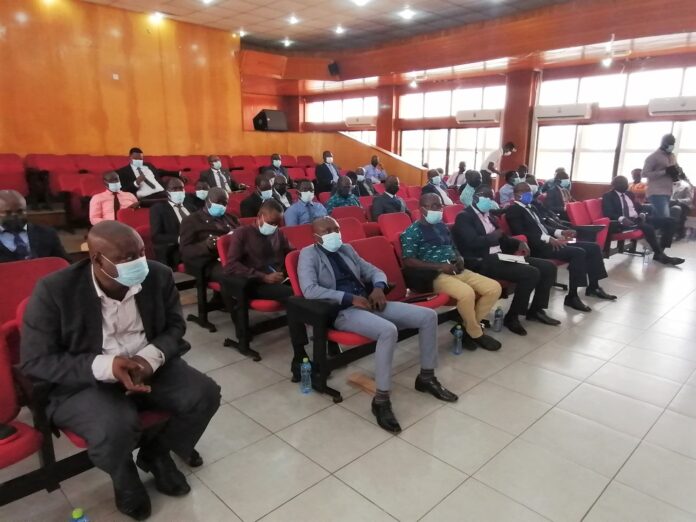
- Subscribers to be linked to Ghana Card
The National Health Authority (NHIA) has said it will stop issuing ID cards to subscribers of the National Health Insurance Scheme (NHIS) by 2022.
The move, according to officers of the scheme, is informed by government’s plan to operationalise the Ghana Cards as the only national identity card, which would be linked to all existing public issued ID cards including the NHIS card.
In view of this, the Ashanti Regional Director of NHIA, Kwadwo Tweneboa-Kodua, has challenged management and staff of the organistaion’s district offices to intensify public education on the platform created by the Authority for subscribers to link NHIS cards to their Ghana Cards.
“For us at NHIA, we are always looking at the best way to offer service at the lowest cost, and with the Ghana Card now, the national ID card, NHIA has created a platform that allows subscribers to link their cards to the Ghana Cards,” he said this in an interview with the B&FT on the sidelines of the ‘Mid-Year Review meeting.
In the not-too-distant future, he said, NHIS subscribers would not need to access healthcare with NHIS cards but their Ghana Cards.
Mr. Tweneboa-Kodua further stated that, already, some subscribers have been able to link their NHIS cards to the Ghana Cards, and is, therefore, entreating other subscribers who are not aware to also link their cards, using the mobile platform accessible on all networks.
Currently, the NHIA only prints cards to people in ‘critical situations’ while linking those of existing subscribers who have the Ghana Cards, the Ashanti Regional Director of NHIA said.
The move, as part of its benefits, also comes as a cost-cutting measure and further help the NHIA to be on track to meet the government’s digitisation agenda.
Mr. Tweneboa-Kodua again assured that the current NHIA administration prioritizes claims payment, saying: “it is only when monies are advanced to service providers that we can be assured of the quality of healthcare delivery to subscribers.
So, the Authority has made it a point to, at least, on a monthly basis, make payments to our healthcare providers.”
At the moment, he said, most facilities have been paid up to March 2021, with the NHIA only being in arrears for some three months as compared to the past.
With these substantial payments made, the NHIA said it also expects quality service delivery for subscribers of the Scheme.
Address to staff
Addressing staff of the NHIA in the Ashanti Region, during the he noted that the effect of COVID-19 has adversely impacted work for the first part of the year.
This, he said, calls for the need to strategize and find new and innovative ways of carrying out the mandate of the Authority in the Region.
He noted that the NHIA has done a lot to keep up with the changing times while recognizing the deployment of a number of digital solutions to bring efficiency and effectiveness in NHIS service delivery, and also in line with the government’s agenda on digitization.
“In the midst of an increasing global technological advancement, we need to always identify better and efficient ways of managing our offices to add value to our services. It is only when we do this that, collectively, we can be assured of the sustainability of the NHIS and the mandate to promote the achievement of the Universal Health Coverage (UHC) by 2030,” Mr. Tweneboa-Kodua said.
In spite of the devastating effect of COVID-19 and other operational challenges, the Ashanti Region, as of June 2021, recorded an active membership of 2,429,586. This represents 73 per cent of the target for the year 2021.
Healthcare providers in the Region have also been paid their NHIS claims up to the month of March 2021, Mr. Tweneboa-Kodua stated.
He, therefore, entreated the staff of the NHIA to continue to work even harder to surpass the various targets for the Region, by the end of the year.









